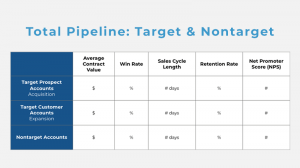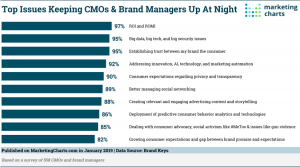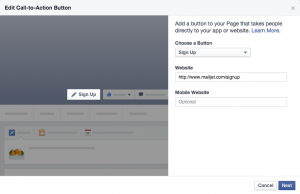Finding success as a freelancer is all about the questions you ask. This is especially true for the questions freelancers should ask potential clients on sales calls. Asking the questions during the sales process will help you identify if the project is right for you, scope the project more accurately, and even increase your chances of closing the deal. Conversely, asking the wrong questions will turn off prospective clients and potentially harm your business (plus waste everyone’s time).
I’ve been a freelancer since 2017, and regularly close four-and-five figure deals via my freelancer inbound funnel. Over the years, I’ve learned the questions that really get prospects talking – and the ones that turn people right off. So that’s what I’m sharing today: the questions freelancers should ask before accepting a freelance job (and the questions you shouldn’t ask).
Questions freelancers should ask potential clients
1 – How do you describe your role? What are you responsible for or accountable for producing?
I like to start the entire conversation with this because it gets people talking about something they know (themselves) and also gives me context about what their job is really about so I can tailor my speech to things that matter to them. On top of this, people usually let their guard down a bit more when talking about themselves. Also, let’s be honest: people love talking about themselves. This puts you more on their level – and in a better position to ask the real questions later on. As far as questions to ask before accepting a freelance job, I consider this number one. Don’t work with people you don’t know.
2 – If this project were an employee, what would they be responsible for?
I like this for more creative endeavours (writing, sound, visuals). These types of projects all need to accomplish something, but not everyone knows how to describe it if you simply say “what is this supposed to do?” However, most people can understand that you don’t hire an employee without a reason, so you can leverage that framework to understand what they want out of you as a freelancer.
3 – What business outcome is this supporting?
At the end of the day, businesses spend money (on employees, technology, and freelancers) to help them make more money in return. That’s the equation. So when you ask about what business outcome the project is supporting, you get closer to the real question of how you can provide ROI to your client. This starts the conversation at the level of the business, not the level of freelancing. It makes you a more strategic partner / part of their work. When you think about questions to ask before accepting a project, this is critical. There’s no point in accepting a project if you have no idea what it’s for, in my opinion.
4 – What else is the business working on that this could support?
This shows that you are thinking about your work in context of their overall goals. This will help uncover hidden reasons why they might be looking for freelancers you can leverage later. It’s also helpful for explaining your own value. If you get asked why your rates are a certain level, for instance, knowing what other business goals your work supports is a great way to explain your value.
5 – What do you need [outcome] to do in order to feel justified in spending money on it?
I typically reserve this question for if the previous ones don’t get me anywhere. As a freelancer, you need to create value in order to charge for your services. Unfortunately, you can’t always ask directly what value someone wants. In many cases, they don’t know the answer. However, when you frame it as a justification, that clears things up. The same potential client that doesn’t know what value they need might know what they can justify to their boss when the invoice comes due.
6 – What prompted this project?
People hire freelancers to do things. It’s really that simple. So if you’re talking to a potential client, you should ask why the project got started in the first place. This will (hopefully) be an enlightening conversation where you learn a bit more about the company and what they hope to accomplish with the freelance project at hand.
7 – What does [outcome / point / thing] mean for you and your role?
This shows that you are connecting your work to your client’s needs, not just looking for a contract. Similar to question one around what someone’s role is, asking this question reminds the person that you are their partner as much as you are a successful freelancer. Given that this person will likely be your client champion, you want them to know you’re in their corner.
8 – What’s your “selfish reason” for doing this project?
My all-time favourite question. It gets people really thinking about what they want out of something. For example, I’m a writer. People have a lot of different reasons why they need content – branding, thought leadership, customer success, sales enablement, lead generation, etc.
9 – What’s the timeline for this project?
Timelines are important, but this question also helps with identifying potential red flags. If a prospect shares the timeline and it seems off, you can ask what’s holding it back (or pushing it up the priority list). A red flag occurs when you’re told the timeline is “ASAP” or something similar. If this is the answer you get, then confirm the prospect is ready to move ahead with all other parts of the project: signing your contract, getting you onboarded, and making sure you can deliver your work. If they aren’t ready, then you might have a bad fit client on your hands.
Questions freelancers should not ask potential clients
1 – Can I talk to your boss about this project first?
In the list of questions freelancers should ask potential clients, this is really, really bad. There may be instances where the person you’re talking to is not able to sign your contract. That’s fine, and you can work around that. But asking to speak to someone’s boss is not only rude, it’s often a huge miscalculation. Talking to the boss, in many cases, won’t help you close the deal. In fact, it might even make it harder for you to close the deal, since often it’s the more junior people who know all the details and can explain how your work fits into the bigger picture.
As far as questions freelancers should ask potential clients, I’d say avoid this one every. single. time.
2 – What do you want?
This question usually comes from a good place. However, there are two problems with it. One, it’s blunt bordering on rude. And two, it’s too broad. Ask questions that uncover more about the reasons behind a project. Simply asking “what do you want” puts your prospect on the defensive.
3 – What’s the scope of this project?
I don’t mean to say you shouldn’t talk about scope. Far from it. However, asking this blunt of a question implies a few things about you. One, it suggests you only care about the size of the project (even if that’s not true). Two, it tells the prospect that you expect them to identify everything for you. And three, it comes off as disconnected to the larger goals. You eventually need to know scope, but that’s something you learn because of the other questions you ask – not because you ask it directly.
Ask the right questions
When you think about the questions to ask in a freelancer interview, it’s more than just figuring out how much you can charge. At the end of the day, a freelance-client relationship is about mutual fit. You’re going to be working closely with your clients the moment you sign the contract. Given that, take some time in sales calls to ask the right questions first. You’ll thank yourself later.
Business & Finance Articles on Business 2 Community
(13)
Report Post








